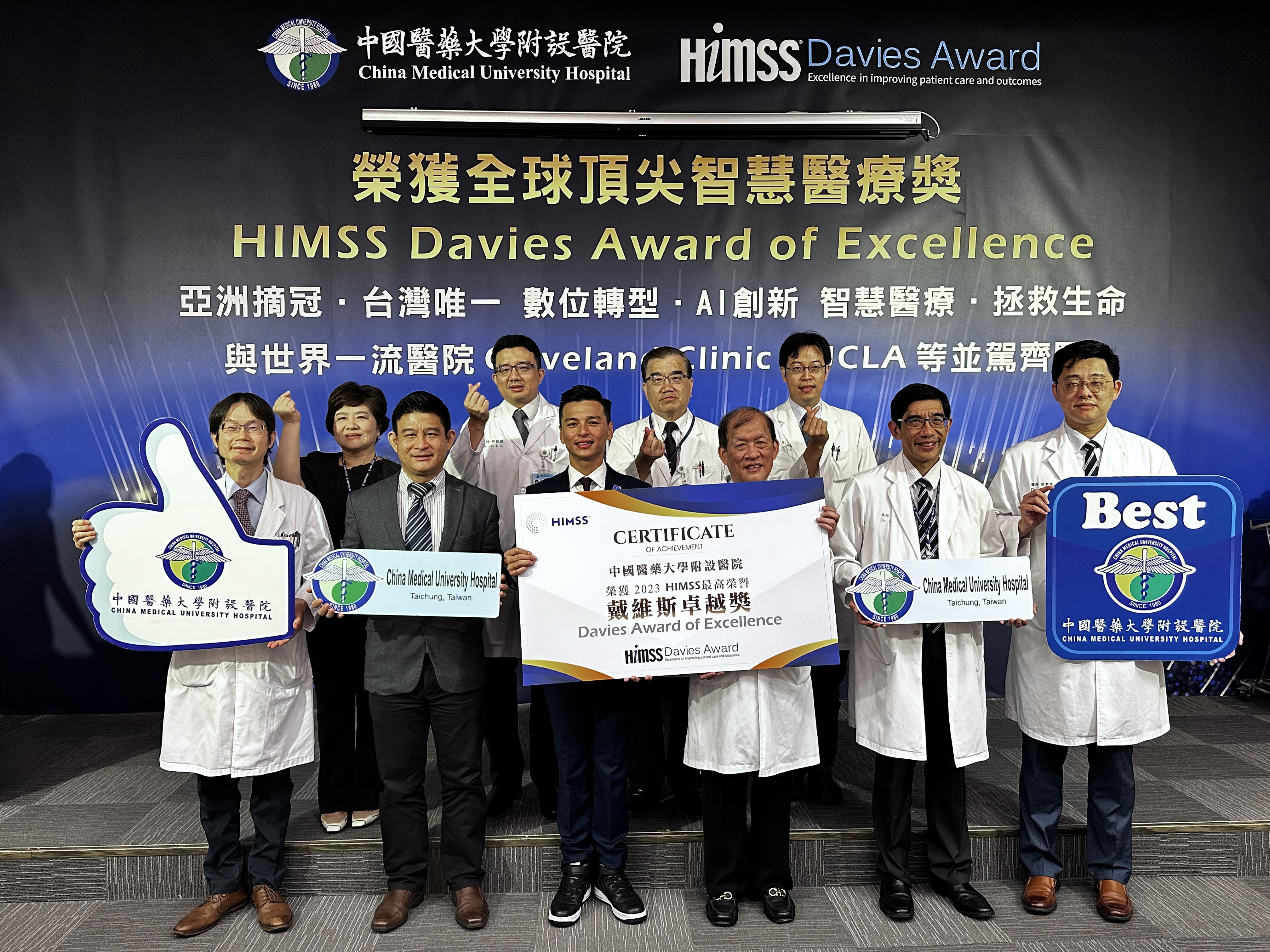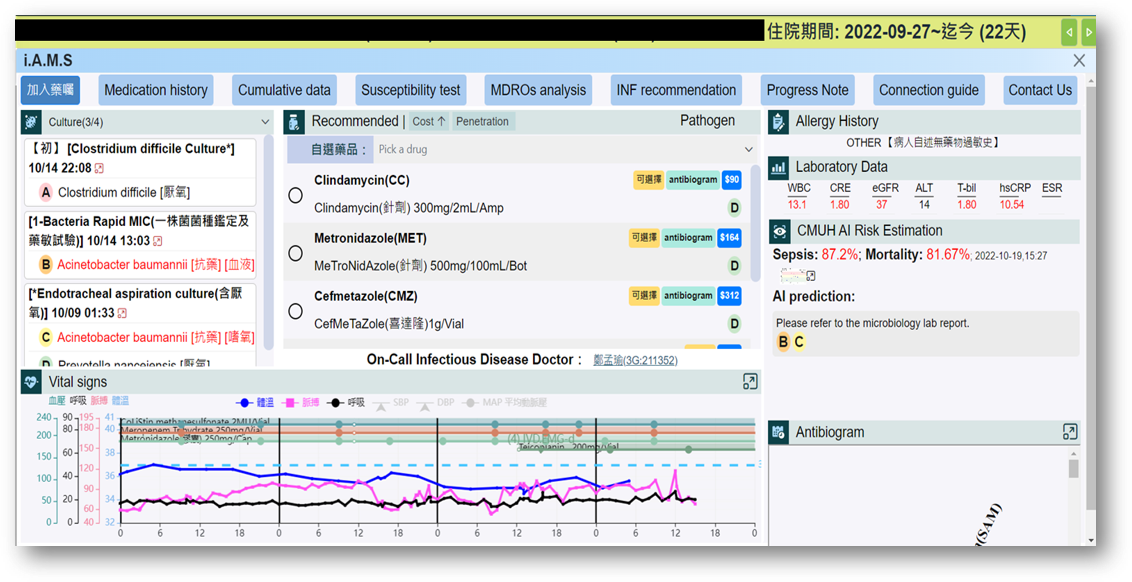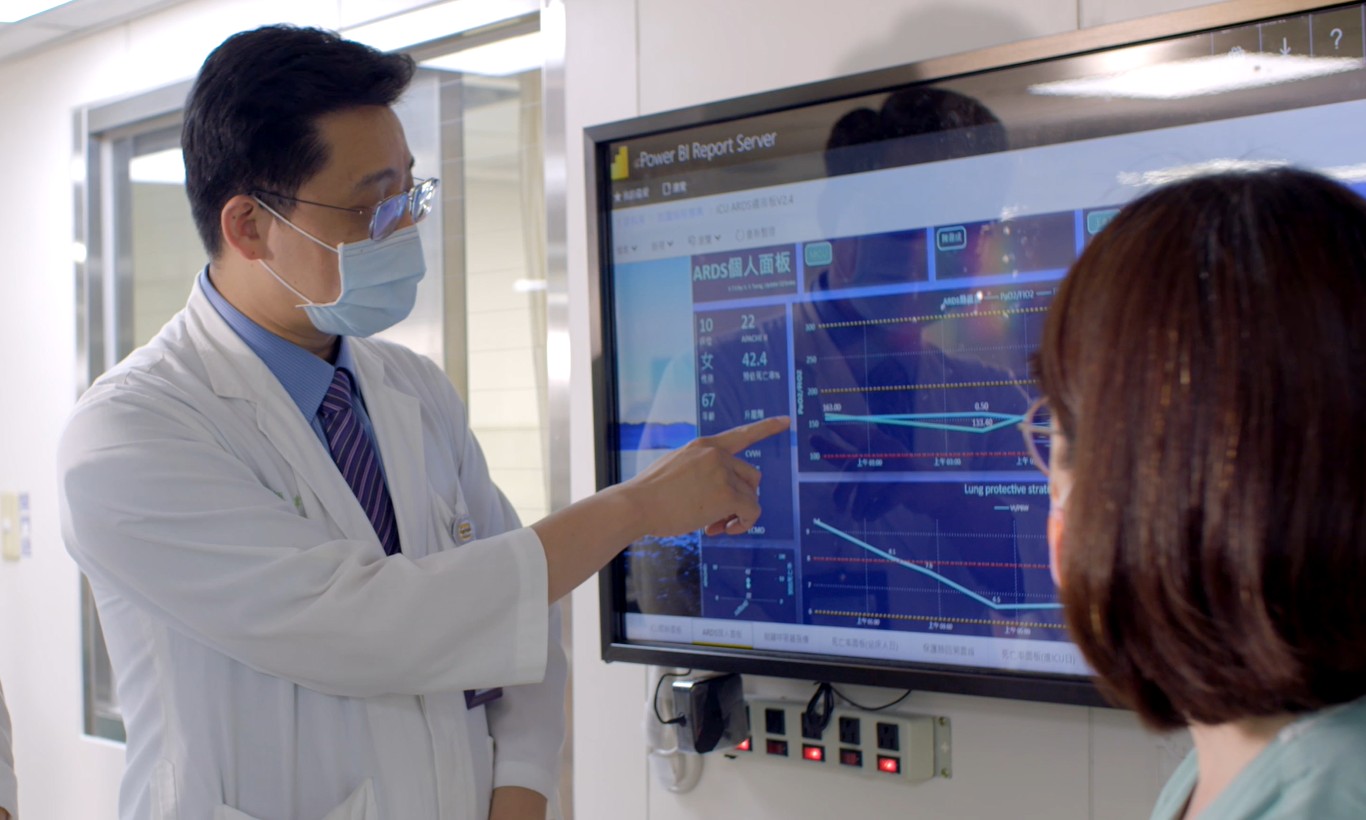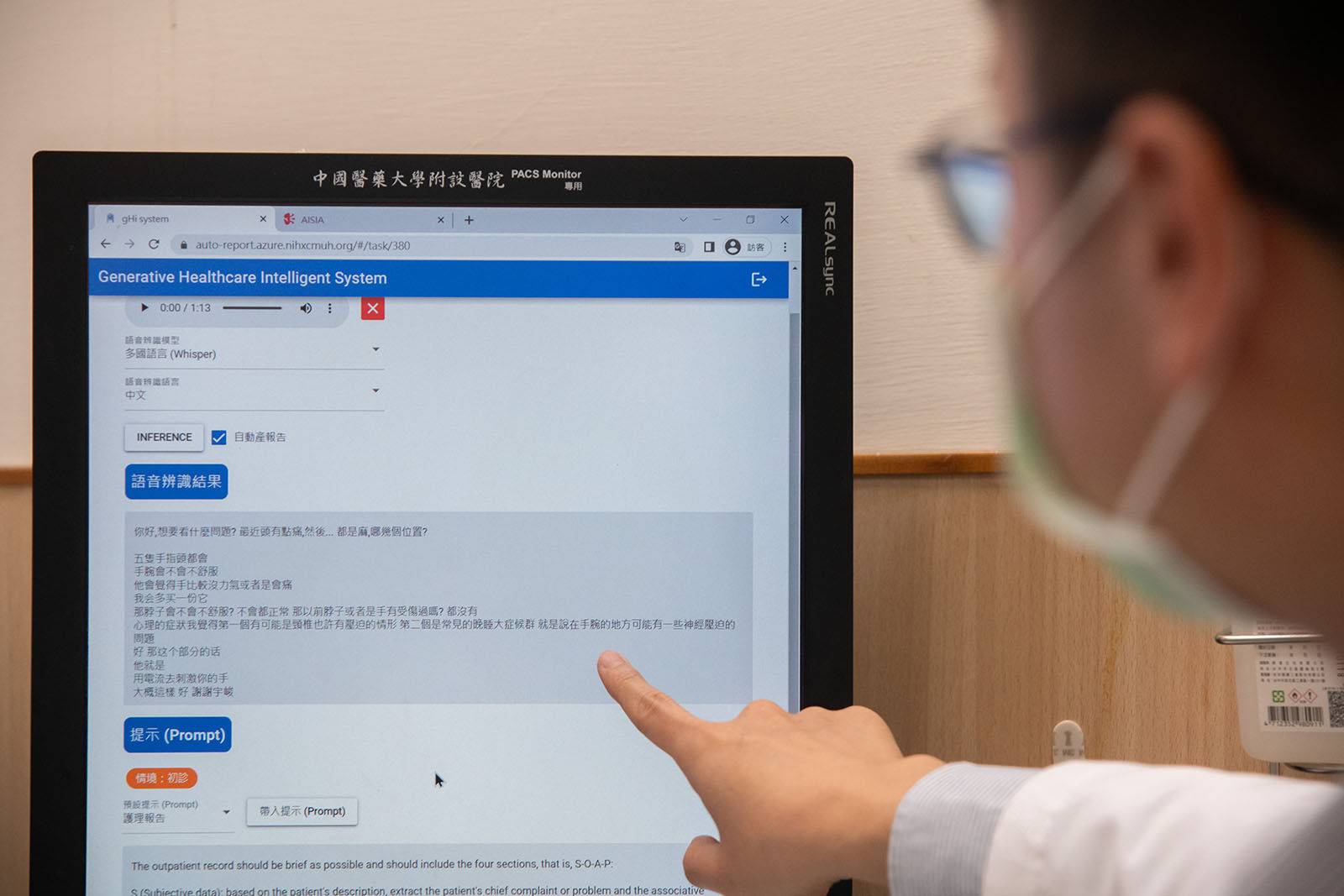China Medical University & Healthcare System
An AI Hospital Managing Most Life-Threatening Conditions- Sepsis, Myocardial Infarction, and ARDS- with Precision

CMUH the first in Taiwan honoured with the HIMSS Davies Award of Excellence (Photo curtesy: CMUH)
Lives can be saved if deadly health conditions, such as sepsis, myocardial infarction and acute respiratory distress syndrome (ARDS), are promptly and accurately treated.
CMUH is at the forefront of using artificial intelligence for patient care, laying its eye on acute and life-threatening diseases. Its partner, EverFourtune.AI, has developed three solutions now being deployed at CMUH, with one already cleared by FDA and another expected to follow suit by the end of 2023.
Their AI-powered solutions aim to alert medical staff for early and timely interventions, ultimately improving patient survival rates. CMUH is the first in Taiwan with the HIMSS’s Davies Award Excellence distinction, making their success a model for healthcare providers in Taiwan and abroad.
CMUH offers consultation to hospitals in building HIS and developing ‘total solutions’.
i.A.M.S Intelligent Anti-Microbial System: Getting results of drug-resistant bacteria in one hour
Typically, it takes three to five days to culture bacteria and identify strains that can cause sepsis. i.A.M.S notifies clinicians of drug resistance 24 to 72 hours before sepsis develops. It achieves a remarkable 95% accuracy in providing early warnings, reducing the chances of using incorrect antibiotics by 12.1%, and increasing the survival rate by 20%.
i.A.M.S is used more than 10,000 times every month and has been adopted by hospitals including Tungs' Taichung Metro Harbor Hospital (Shalu Branch), Feng-Yuan Hospital, and Chi Mei Medical Center. The system is compliant with Fast Healthcare Interoperability Resources (FHIR), enabling hospitals outside Taiwan to benefit from it through federated learning.

CMUH’s Intelligent Anti-Microbial System generates results of drug-resistant bacteria in one hour (Photo curtesy: CMUH)
AI-assisted STEMI Triage System from Ambulance to ER: Identifying heart attack in just 37 seconds
Every second counts when it comes to myocardial infarction (aka “heart attack”). This AI-assisted STEMI triage system by CMUH is designed to analyse data collected and sent back from an ambulance, then beam back results in just 37 seconds. Not only can this system reduce the time required for examinations upon arrival but also speeds up the entire ER process, potentially saving up to 12 minutes, which can be critical in restoring blood flow to the myocardium.
The system is currently in use in central Taiwan, Brunei and Malaysia.
ARDiTeX AI-Driven Lung Protective for Patients with Acute Respiratory Distress Syndrome
Acute Respiratory Distress Syndrome (ARDS) is a challenging complication of COVID-19. When ARDS occurs, the entire ICU team mobilises with the aids spanning ventilators, medications, prone positioning and even an ECMO for intervention.

CMUH’s ARDiTeX visualises health data of patients with acute respiratory distress syndrome (Photo curtesy: CMUH)
The use of AI for early detection of ARDS, coupled with Microsoft's Power BI (Business Intelligence) implemented in 2021, integrates and visualises medical records that enable personalised care. As a result, the survival rate has increased by 17%, marking a significant milestone in advanced critical care through emerging technologies.
★★★ More by CMUH
◎iHi Platform: Propelling personalised, precision medicine
Using de-identification data, the iHi Platform now hosts vast datasets collected from three million citizens over the past 20 years, along with nearly 60,000 cancer registry entries. It integrates clinical records, NHI records, medical images, information on genomes, and living and environmental factors. The data can be used to create digital twins and explore correlations between genes and diseases, such as identifying genes associated with Alzheimer’s and vascular dementia for prevention and personalised treatment.
◎Allogeneic CAR-T Cells Targeting Solid Tumours
Compared to the time-consuming autologous CAR-T cell manufacturing process, CMUH is making strides in domestic production that eliminates the need to ship cells overseas. The process involves adding a formula containing ‘stimulating factors’ to allogeneic cells collected from healthy donor samples, allowing the cells to expand and proliferate by up to 2,000 times.
Intelligent production lines make mass production feasible without having to wait for months. These ‘re-engineered, multi-targeted’ cells could target up to 90% of solid tumours. The said manufacturing process and human trials of this cell therapy are pending scrutiny and approval by Taiwan's Food and Drug Administration.
◎gHi System: Clinical documentation tool using speech recognition and generative AI
CMUH has partnered with Microsoft to have developed the first bilingual (English and Mandarin) clinical documentation tool that creates transcripts of patient visits, generates narratives for nursing, takes medical notes and compiles reports of medical exams, optimising efficiency by freeing up 75% of the time on administrative tasks.

CMUH and Microsoft co-developed the gHi system helps automate healthcare documentation (Photo curtesy: CMUH)
◎CMUH Mobile Application: Transforming the patient experience
This patient-centred mobile application, combined with the virtual NHI card, provides a digital tool that guides patients through their journey from check-in to check-out. It also allows real-time status checks and provides information on scheduled medical exams. Inspired by Samsung Medical Centre, CMUH’s mobile app for patients now extends its mHealth services to transform the patient experience.




